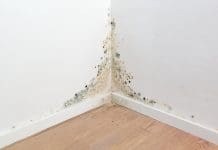New Decent Homes Standards have been proposed for the private rented sector for the first time, to ensure that homes are safe and secure
A consultation on introducing updated Decent Homes Standards to the rental sector has been launched by the Department for Levelling Up Housing and Communities, as previously outlined in the Fairer private rented sector white paper.
The legislation would mean landlords are legally bound to make sure their property meets a reasonable standard.
The social housing sector has been subject to a decent homes standard since 2001.
The consultation will hear views from renters, landlords, councils and housing groups
Over a fifth of the 4.4m privately rented homes in England are in poor condition. The Government has committed to halving the number of poor-quality rented homes by 2030, which the Decent Homes Standards would help to ensure.
The consultation will ask whether privately rented homes should be required to be kept in a good state of repair with efficient heating, suitable facilities, and free from serious hazards like major damp or fire risks.
The consultation will run for 6 weeks and seeks views from tenants, landlords, and others in the sector on whether such new standards should be introduced and on how they should be enforced.
Housing secretary Greg Clark said:
“I want to see a thriving private rented sector, but that does not mean that tenants should have to suffer homes that are not of decent standard.
“This consultation asks what the minimum standard for privately rented homes should be.”
Alicia Kennedy, Director of Generation Rent said:
“We welcome these plans to extend the Decent Homes Standard to private rented homes.
“As the private rented sector has grown to overtake the social sector in size, not enough action has been taken on the poorer conditions private tenants must put up with. Private rented homes are more costly to heat and at a higher risk of disrepair and damp problems. There is no reason why private tenants should expect a worse service than social tenants.
“This crucial measure will help tenants get value for money, whoever they rent from, and stop landlords from profiting by cutting corners.”
Larger investors have a role to play in lifting the standards of rented housing
Avinav Nigam, cofounder and COO at IMMO, says:
“Despite rents reaching record highs since the onset of the Covid-19 pandemic, millions of renters continue to be faced with below par, and sometimes illegal, standards of accommodation. The latest English Housing Survey revealed that nearly a million homes for rent pose a significant hazard to the health of residents, which is why today’s consultation launch is most welcomed.
“Regulatory changes and an unfavourable tax regime mean amateur landlords, who make up most of the buy-to-let market, are leaving en masse. With huge funding gaps to fill, it’s only right that policymakers now encourage a diversification of ownership structures so that the sector attracts more institutional capital, and the government avoids making the taxpayer foot the bill. Larger investors such as pension funds, banks and insurers have long-term vested interests in improving the quality of rental stock, in order to meet ESG criteria, affordability standards, and produce bond-like returns that match liabilities, and by harnessing the power of machine learning and big data, they can identify, acquire and upcycle stock in the most cost and time efficient manner.
“This is a welcome change from policymakers that will help raise living standards in the housing category.”














